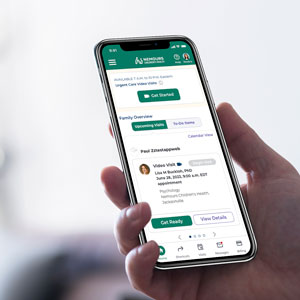CLOVES Syndrome
CLOVES syndrome causes tissue overgrowth and vascular anomalies (blood vessels that haven’t developed like they should). It can affect the blood, bones and joints, spine and internal organs, and lymphatic vessels (which carry fluid from the tissue back to the body’s circulation).
CLOVES stands for:
- Congenital (meaning a child is born with it)
- Lipomatous (lipomas — slow-growing fatty lumps under the skin on one or both sides of the back and belly)
- Overgrowth (of fatty tissue, which grow much more quickly than others)
- Vascular malformations (growths of blood vessels that haven’t developed like they should)
- Epidermal nevi (skin lesions)
- Skeletal and spinal problems and/or scoliosis (curved spine or other spinal problem)
Nemours Children’s Hospital, Florida in Orlando is one of the only pediatric hospitals in the United States that’s equipped to treat CLOVES syndrome. We know that kids with CLOVES need complex care. That’s why we have a team of specialists working together to come up with the best care for your child.
Why Choose Us
Because CLOVES is so rare, it’s still unknown to many health care providers. At Nemours Children’s Hospital, Florida our interventional radiologist is one of only about 100 specialists in the United States to provide image-guided procedures to treat CLOVES syndrome.
Learn more about Craig Johnson, DO
Highlights of Our Care
At our free-standing, pediatrics-only hospital, you can count on:
- Advanced services and care just for kids, with the latest equipment designed especially for children, and doctors from different fields working together to help your child
- Advocacy to help you access resources in your community
- Care coordination to help you with scheduling appointments, procedures, tests and at-home care
- Collaboration to build your support network with providers and families facing similar challenges
- Communication with your primary care and community providers
- Support to help you throughout your child’s care
As a team, we all work together to help your child with CLOVES syndrome and improve their quality of life.

